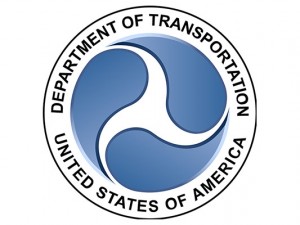DVIR “No Defect” final rule
The U.S. Transportation Secretary, Anthony Foxx, announced on Dec. 18, 2014, that commercial motor vehicle drivers operating in interstate commerce will no longer have to comply with the daily paperwork requirement associated with completing a post-trip vehicle inspection report (DVIR) when no defects are found. An exception to this rule is the passenger-carrying CMV’s who…

The U.S. Transportation Secretary, Anthony Foxx, announced on Dec. 18, 2014, that commercial motor vehicle drivers operating in interstate commerce will no longer have to comply with the daily paperwork requirement associated with completing a post-trip vehicle inspection report (DVIR) when no defects are found. An exception to this rule is the passenger-carrying CMV’s who still must adhere to the procedure.
Intrastate commerce regulations vary by state so carriers should check with their respective state motor carrier enforcement agency to determine the applicability of this ruling to the state code of regulations. Many states have adopted (all or parts of) the federal regulations.
This comes in part as a response to President Obama’s initiative to reduce paperwork without compromising safety.
Regardless of the ruling and its subsequent potential change in paperwork, it should be the responsibility of every commercial motor carrier to continue diligence in training their drivers on the proper procedure in conducting an effective vehicle inspection.
During training, supervisors can use the opportunity to advise employees of their responsibilities as a driver of a commercial motor vehicle.
In a recent trade article published by Lockton, an insurance brokerage firm, the Company suggests that trucking companies follow up scheduled vehicle maintenance results with the driver.
“When a vehicle goes through its scheduled maintenance and is found to have defects which could have been detected during normal driver pre- or post- trip inspections, use that information as an opportunity to coach the driver on the importance of conducting thorough vehicle inspections.
Quietly observe your drivers conducting vehicle inspections, to gain insight as to their normal routines. Should your driver not be conducting adequate vehicle inspections, use the observation to coach the employee on the importance of vehicle inspections.”
Whether you choose to follow the dictates of the ruling or continue with your current DVIR pre- and post-schedule, as many of our members plan to do, nothing can replace diligence when it comes to vehicle maintenance. To read more on this ruling, visit the Federal Motor Carrier Safety Administration website.
